About this blog: We always wanted to visit the Panch Kedars and Tungnath was the first one we explored. Along with it, we also did Deoriatal Chandrashila trek. This blog will give you all the details about the trek, how to reach and other important tips and guides.
One of them is the highest of the Panch Kedars while the other has an interesting story surrounding it. I am talking about the Tungnath Deoriatal Chandrashila Trek in Uttarakhand. While Tungnath is one of the Panch (five) Kedars, Deoriatal Chandrashila trek undoubtedly offers one of the best views of the Uttarakhand mountain ranges. From the Chandrashila summit, you get a stunning view of almost all the major summits of eastern and western Uttarakhand.
Did we tell you, that this is one of the easiest treks from where you can see all the ranges so close?
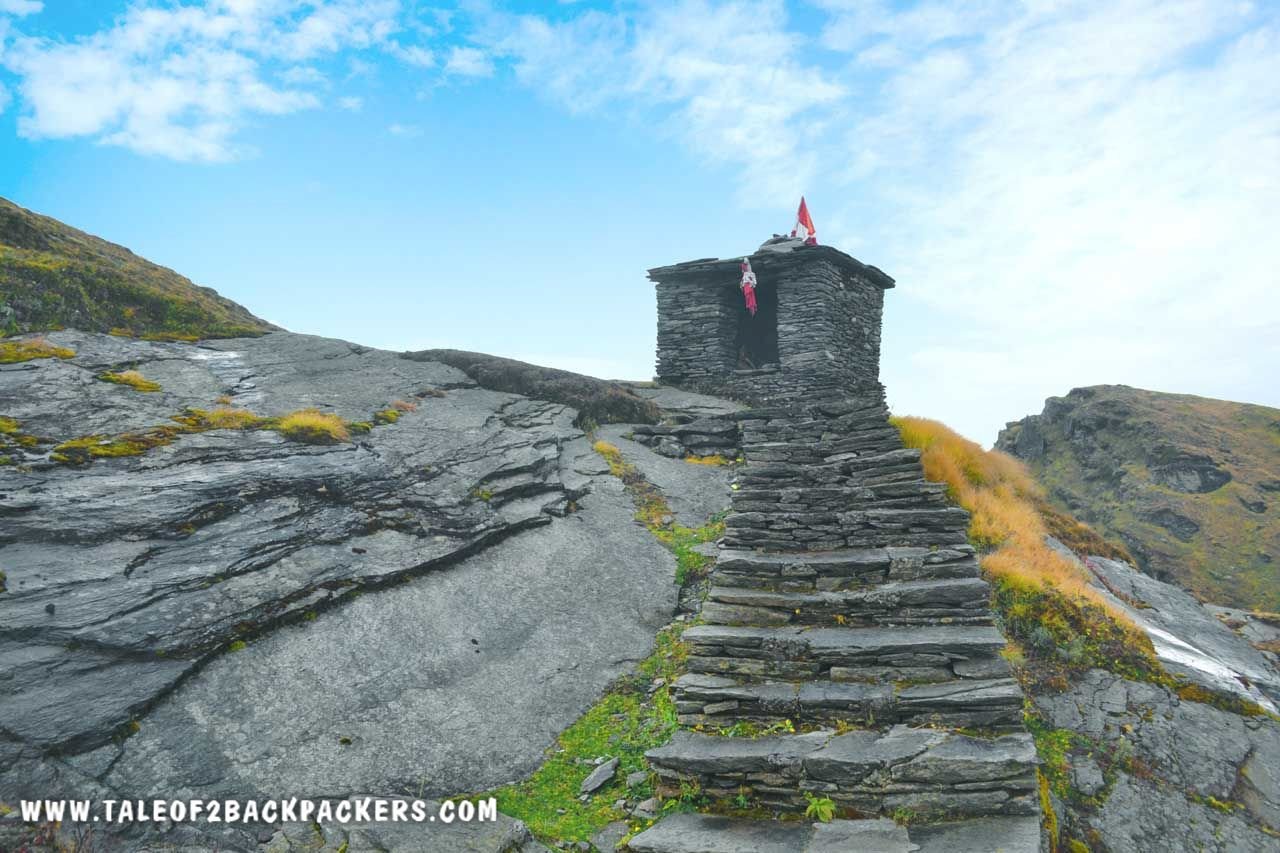
While the Tungnath Chandrashila trek starts from Chopta, a beautiful destination in Uttarakhand, the Deoriatal trek starts from Sari village. Both these treks are usually done together. We have already mentioned the importance of Tungnath of being one of the five Kedars. Deoriatal, on the other hand, is known for the lake at the backdrop of the mighty Himalayan ranges.
Know all about Tungnath Deoriatal Chandrashila Trek
The Himalayas is full of stories and myth. We love stories and so we look for them wherever we go. So we start of the article with a little background mythology and stories related to these three places – Tungnath Deoriatal and Chandrashila. If you are fond of stories and mythology, keep on reading, or else jump to the next section.
Tungnath Chandrashila Deoriatal Trek Map
Hope this map helps you to understand the route.
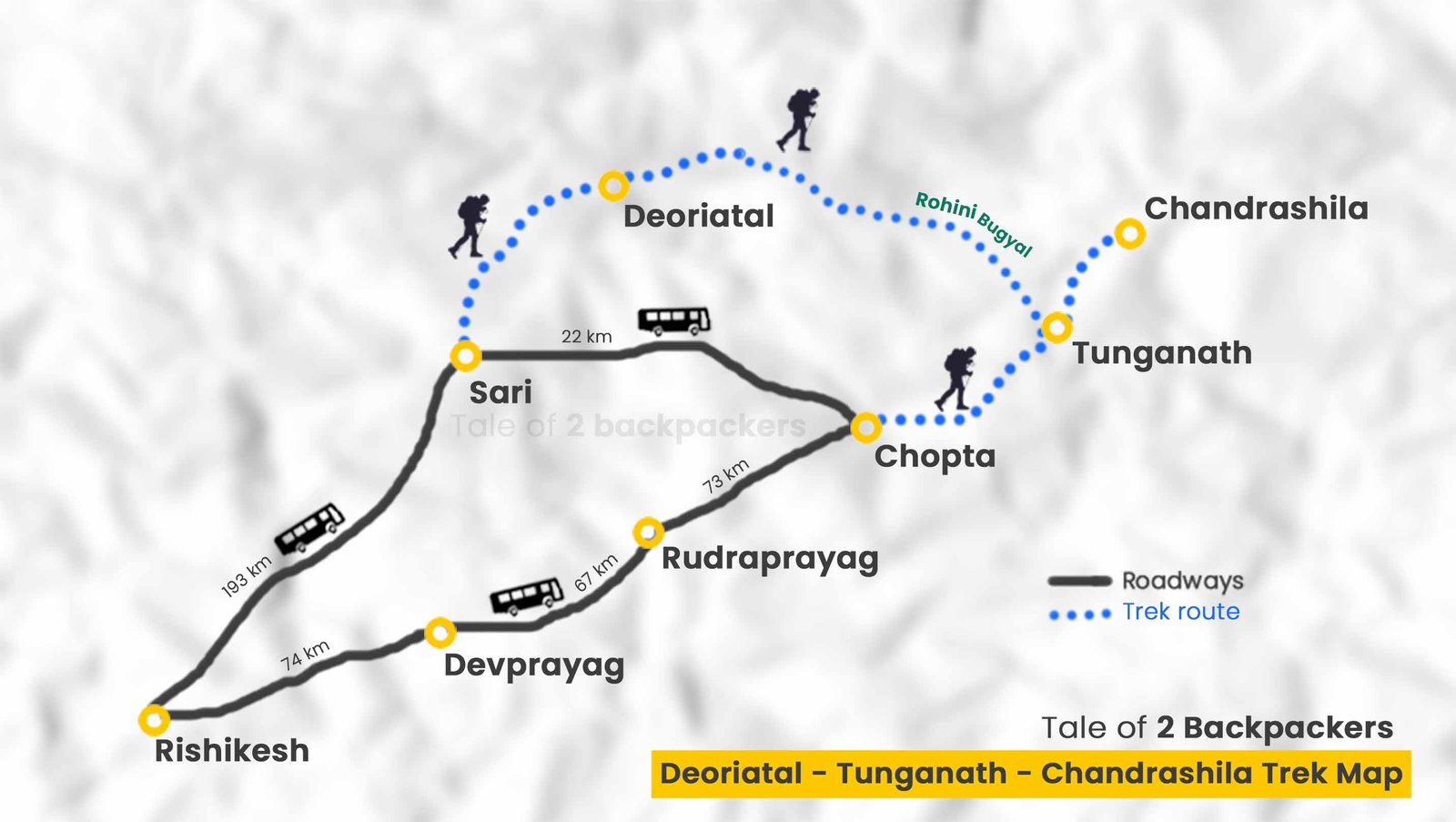
The legend of Tungnath
What is so special about Tunganath? The fact, that it has the highest temple of Lord Shiva at a height of 3680m. Or the fact that it offers a completely stunning, mesmerizing panoramic view of the Himalayan ranges. It might also be the fascinating legend behind the Tungnath shrine. Whatever be it, we urge you to read about the story behind Tungnath. It will help you to understand and appreciate the place and the people who you might see on the way to Tungnath trek a tad bit better.
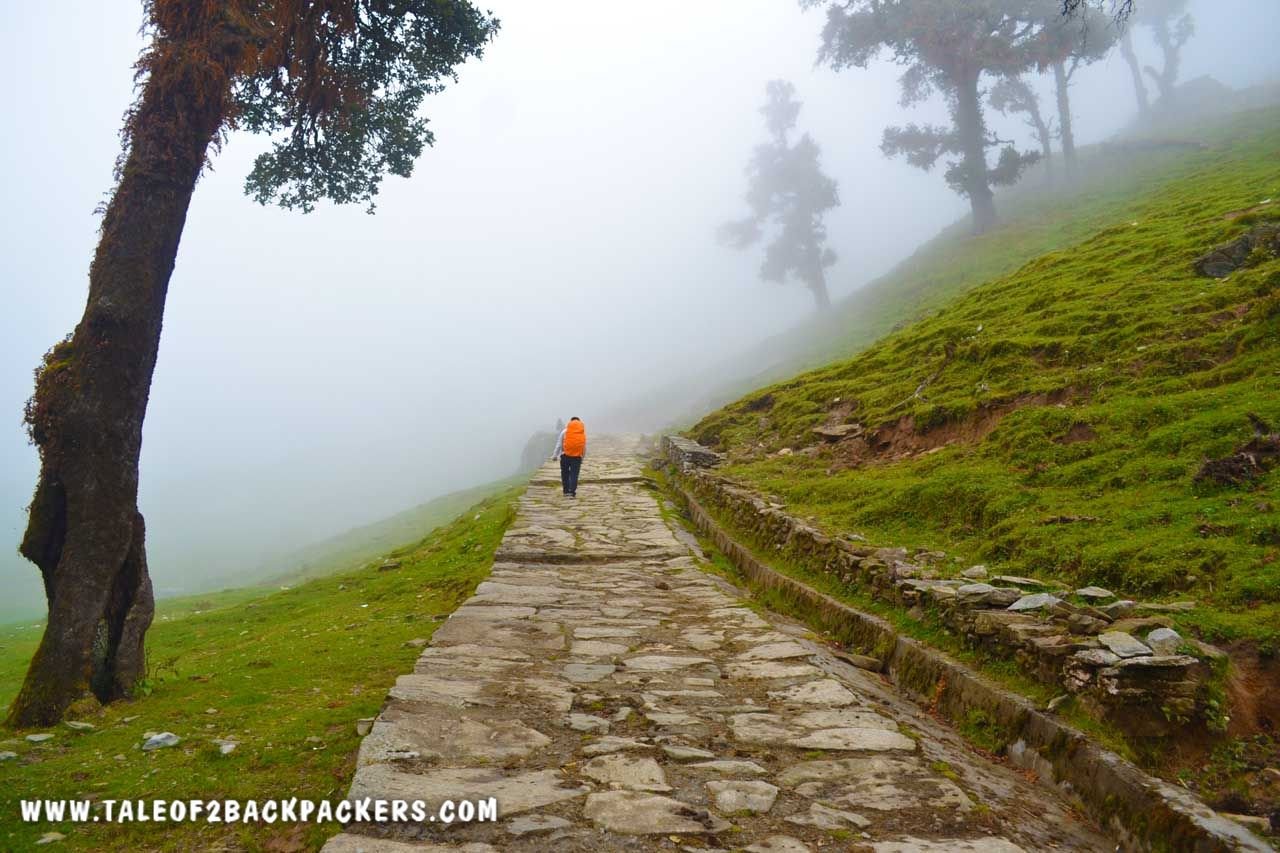
The legend of Tunganath is very intimately related to the Hindu epic Mahabharata. Mahabharata tells the greatest political saga of all times where two families Pandavas and Kauravas fight against each other for the kingdom. After the 18 days war at Kurukshetra, the Pandavas won the battle after killing all their 100 Kaurava brothers and their relatives.
After winning the war, the Pandavas were grieved at this mass killing and were repentant of their action. After all, they were their brothers and relatives that they had killed in the war! So they went for Narada’s advice who asked them to ask for forgiveness from Lord Shiva. Only the master of the universe will be able to absolve them of their sins. On the other hand, Narada went and informed Lord Shiva that the Pandavas were seeking him for forgiveness.
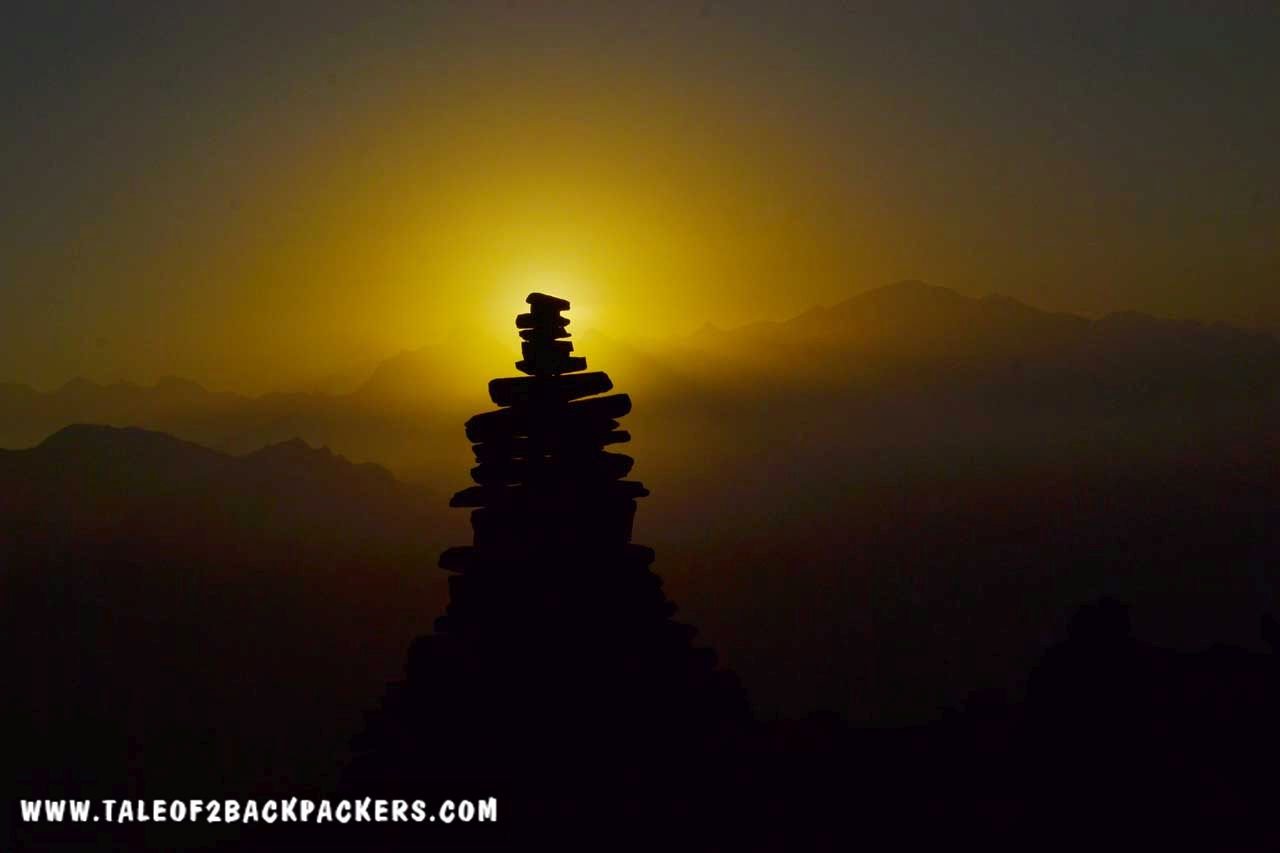
Lord Shiva was convinced of the sins of the Pandavas and did not think appropriate to exonerate the Pandavas of their sins. Neither did he want to face the Pandavas. So he took the form of a bull and hid at Guptakashi, the underground heaven. Narada, in the meanwhile, informed the Pandavas of the whereabouts of Lord Shiva. The Pandavas went in search of the Lord. After a long search, the Pandavas met a Bull on their way. The Bull was disguised Lord Shiva and he tried to hide from them. Bhima, the strongest of the Pandava brothers chased the bull.
The bull later rematerialized at five different parts and these places later came to be known as Panch Kedars. Different parts of the bull rose at different locations – the hump at Kedarnath, the limbs at Tunganath, the navel and stomach surfaced at Madamaheshwar, the face at Rudranath and the hairs at Kalpeshwar. It is believed that the Pandavas had built temples at all the five locations and were finally freed of their sins. It is also believed that the front portion of the bull fell at Pashupatinath in Nepal.
YOU MAY ALSO LIKE : Rupin Pass – an epiphanous journey
Tungnath Temple
The Tungnath Temple is a small temple built on the Chandranath Parbat in the Rudraprayag district of Uttarakhand. Located just below the Chandrashila peak, it is said to be one of the highest temples of Lord Shiva at an altitude of 12073 feet or 3680m. The temple is built in the traditional north India architecture style. There are a number of shrines surrounding the temple and at the entrance, you will find an idol of Lord Ganesh.

In the main sanctum, ashtadhatu (made of eight metals) idols of sage Vyas and Kaal Bhairav (demi-god) are placed. The temple also houses the images of the Pandavas and silver plaques of other four Kedar shrines. An idol of Adi Guru Shankaracharya is placed near the idol of Shiva. The temple remains closed during the winters and during that time the deity along with the temple priests are moved to Mukumath, 19 km from Tunganath. The journey dates of the deity from Mukumath to the temple and back is decided by the priests and is done with much reverence by the locals.
Stories and legend about Chandrashila or moon rock
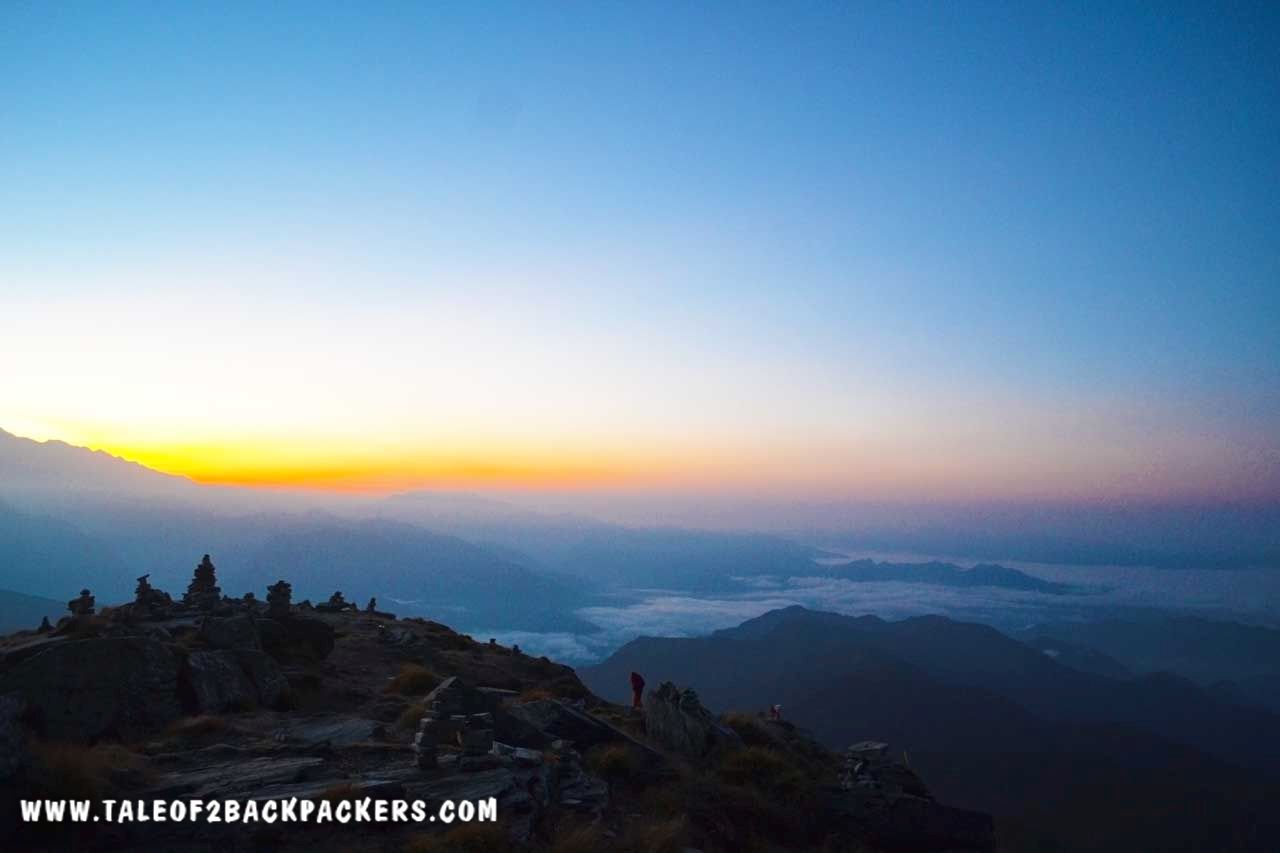
Chandrashilais the summit of the Chandranath Parbat on which the Tunganath Temple is situated. As we said earlier there is no dearth of stories in the Himalayan region. Legend has it that the Moon God Chandra spent time here in penance.
Did you know that Chandrashila literally means the moon rock?
Another legend says that Lord Rama meditated here at the Chandrashila summit after defeating the demon king Ravana. Whatever be the legend behind the place, Chandrashila peak offers stunning panoramic views of the Himalayan ranges of Chaukhamba, Trishul, Nanda Devi peaks, Kedarnath, Kedar Dome, Gangotri and Yamunotri peaks. The peak is at a height of about 12083 feet or 3683m. There is a temple dedicated to River Ganga at the summit.
Legend behind Deoriatal
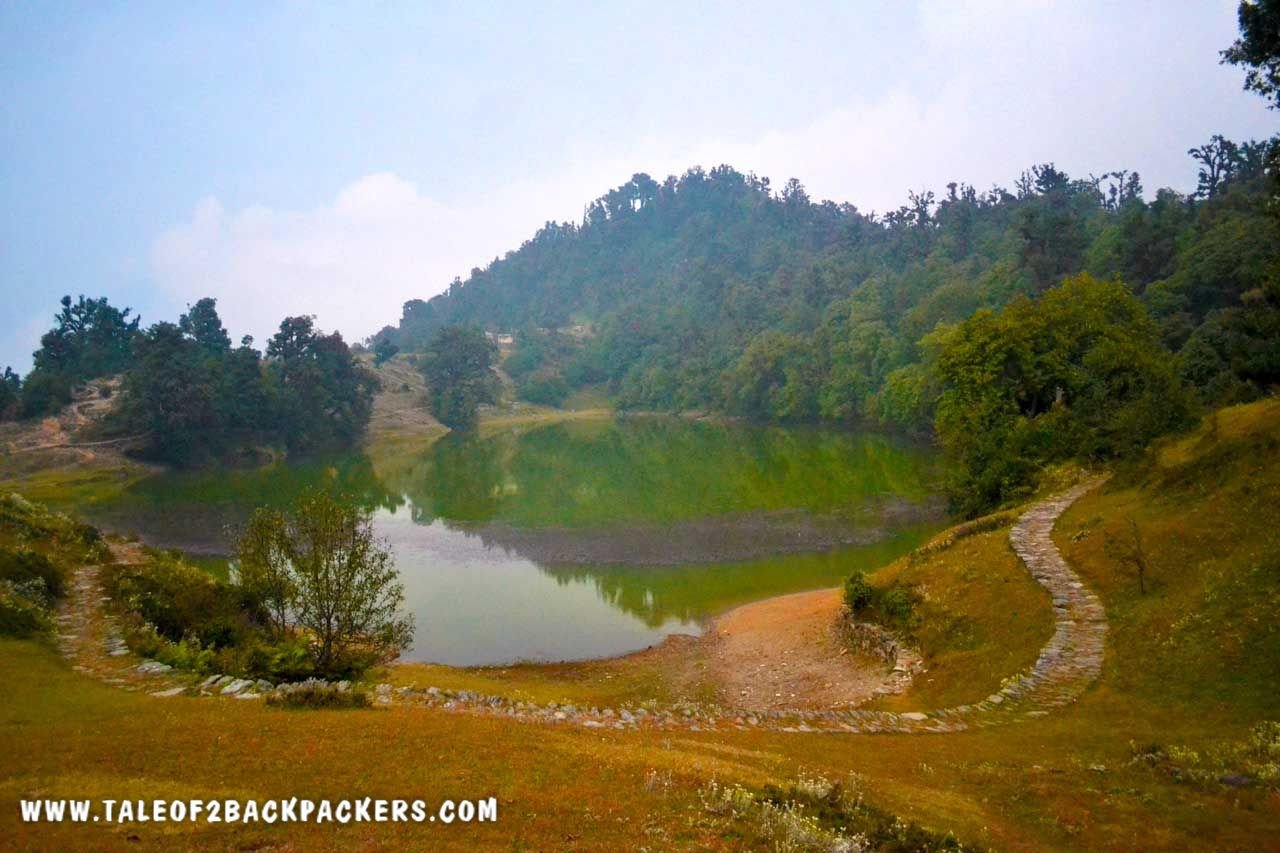
It seems that the Pandava brothers of Mahabharata not only fought to win at the battlefields, but they were also wanderers and trekkers. Deoriatal is also related to a mythological tale about the Pandavas. It is said that Yaksha (a demi-god) asked questions to the Pandavas before allowing them to drink water from the lake.
Also known as Devariya Tal, it is believed that this was the “Indra Sarovar” mentioned in the Puranas and the gods used to come here for taking a bath! Well, with the view of all the majestic peaks at the background, the place was surely meant to be for the gods!
YOU MAY ALSO LIKE : Amarnath Yatra Trek Route – a complete Guide
The most common itinerary for Tungnath Deoriatal Chandrasila Trek
We mostly get questions about the itinerary to take for TungnathDeoriatalChandrasila Trek. So we decided to share the most common itinerary for the Deoriatal, Tungnath and Chandrashila trek. This was also the route we took for the trek. For the TungnathDeoriatalChandrasilatrek, you have to reach Haridwar or Rishikesh first. So we will start the itinerary from there.
Day 1 | Haridwar/ Rishikesh – Ukhimath – Sari – Deoriatal
We started early from Rishikesh and took a bus from towards Ukhimath. It is about 7-8 hours from Rishikesh through the beautiful Devprayag and Rudraprayag. Sari is about 12km from Ukhimath. We did not get any shared vehicle from Ukhimath towards Sari and so hired a cab to the village.
We usually do not book our accommodations while travelling. We believe that that in India there is always a room available. After arriving at Sari, we looked around asking people for places to stay at Sari. We were shown the house of Mr Negi. We reached there and were welcomed by Mr and MrsNegi. Knowing that we did not have our lunch, Mrs Negi quickly went on to prepare something for us. While we waited for food, we talked with Negiji, a gentle person and a trekker himself. He suggested us to trek to Deoriatal that day itself and stay at the tent there. It was a great proposal and we happily agreed.
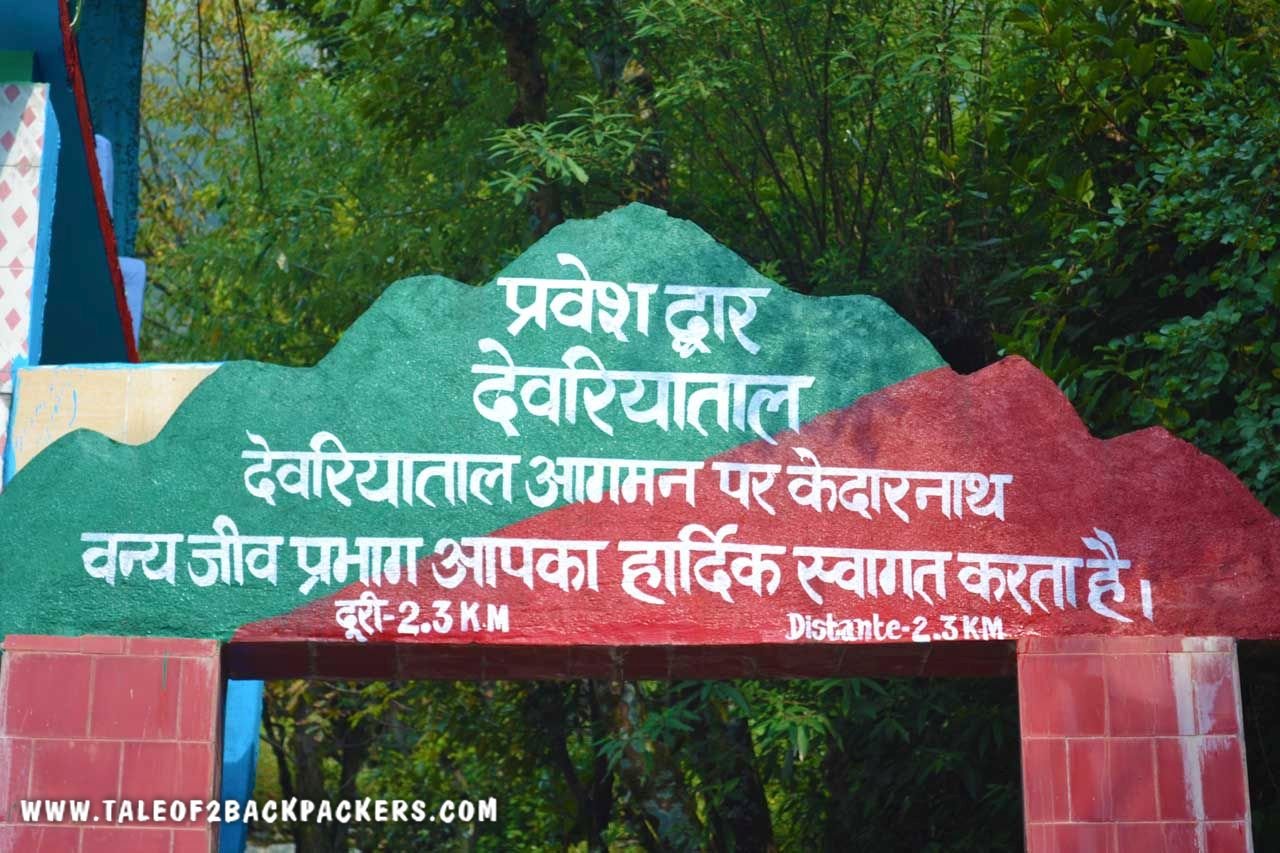
After having our lunch, we started our trek towards Deoriatal. Sari to Deoriatal is about 2.5-3km and it took us around 2 hours to reach Deoriatal. The trail is well marked and you do not need a guide for it. There were a number of tents and we were the only one there that day. We chose one and stayed there for the night.
Deoriatal is located at an altitude of 2438m surrounded by dense forests and having the snowcapped ranges at the backdrop. The reflection of the Chaukhamba range on the clear waters of the lake is simply a delight to see. I was so excited that I would see something like it after Tonglu in Sandakphu and Phalut trek.
Day 2 | Deoriatal – Chopta – Tungnath
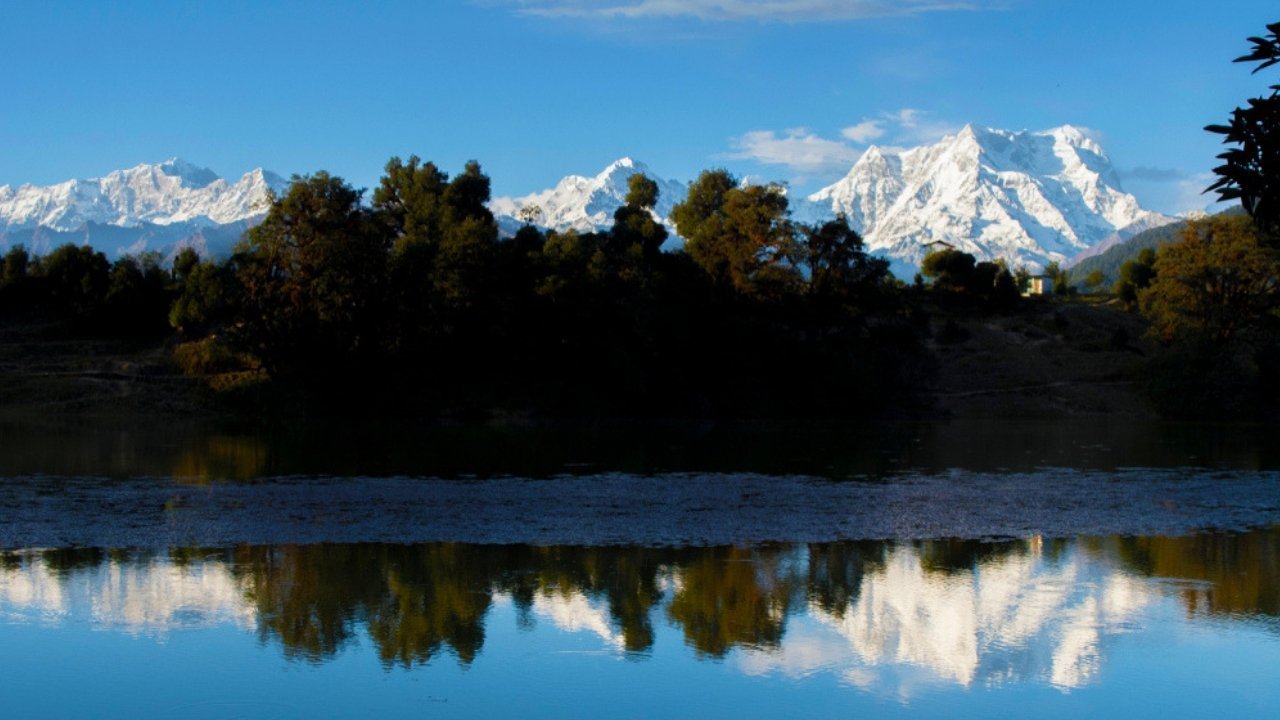
The next morning, we woke up in order to see the mesmerising view of the ranges on the waters of the Deoriatal Lake. It was a surreal feeling to see the view. Having seen the photographs before, we knew what it looked like. But watching it with our own eyes is a different experience altogether.
After having our breakfast, we trekked down to Sari village. There Negiji had arranged a car for us that would take us to Chopta. We reached Choptaby noon and had our lunch there. Chopta by itself is a very scenic place surrounded by forests of pine, deodar and rhododendrons, meadows and flattering vistas. Chopta is often known as the ‘Switzerland of India’, but I don’t think that a place should be named as such. I am sure Switzerland is beautiful, but Chopta is also amazing in its own right.
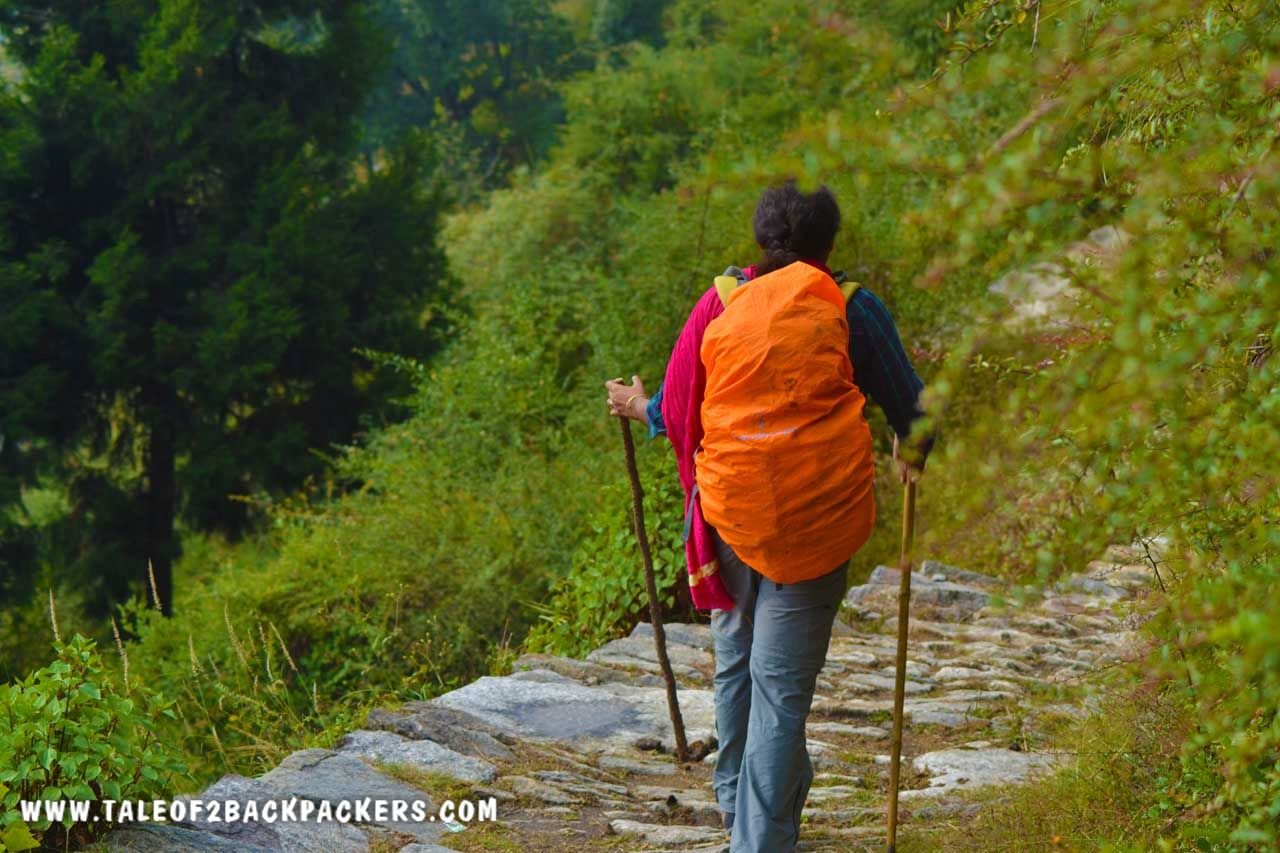
The initial plan was to stay at Chopta for the night and trek to Tungnath and Chandrashila the next day. But we decided to do the Tungnath trek that day itself. After lunch, we started our trek towards Tungnath.
Tungnath is about 4km from Chopta. The trail is properly paved till Tungnath and there is no need to take any guide. The weather was a bit gloomy. Clouds hang low while we were on our way to Tungnath. We saw many people of different ages on their way to Tungnath or returning from there. Tungnath is one of the holy shrines of Lord Shiva and is visited by a lot of pilgrims. Though our reasons to trek to Tungnath was not religious, we enjoyed hiking through the beautiful trail.
It took us 2 hours to reach Tungnath. There are a number of shops with accommodation facilities below the temple premises. The facilities are very basic with dormitory beds and common toilets, but the people are very warm and welcoming. We decided to stop for the night at one such place. You can also stay at the temple guest room. But remember that the temple remains open for only a fixed time of the year, usually between May to October. Come November, there is a lot of snowfall at Tungnath and reaching Chandrashila becomes difficult.
Day 3 | Tungnath – Chandrashila – Tungnath – Chopta
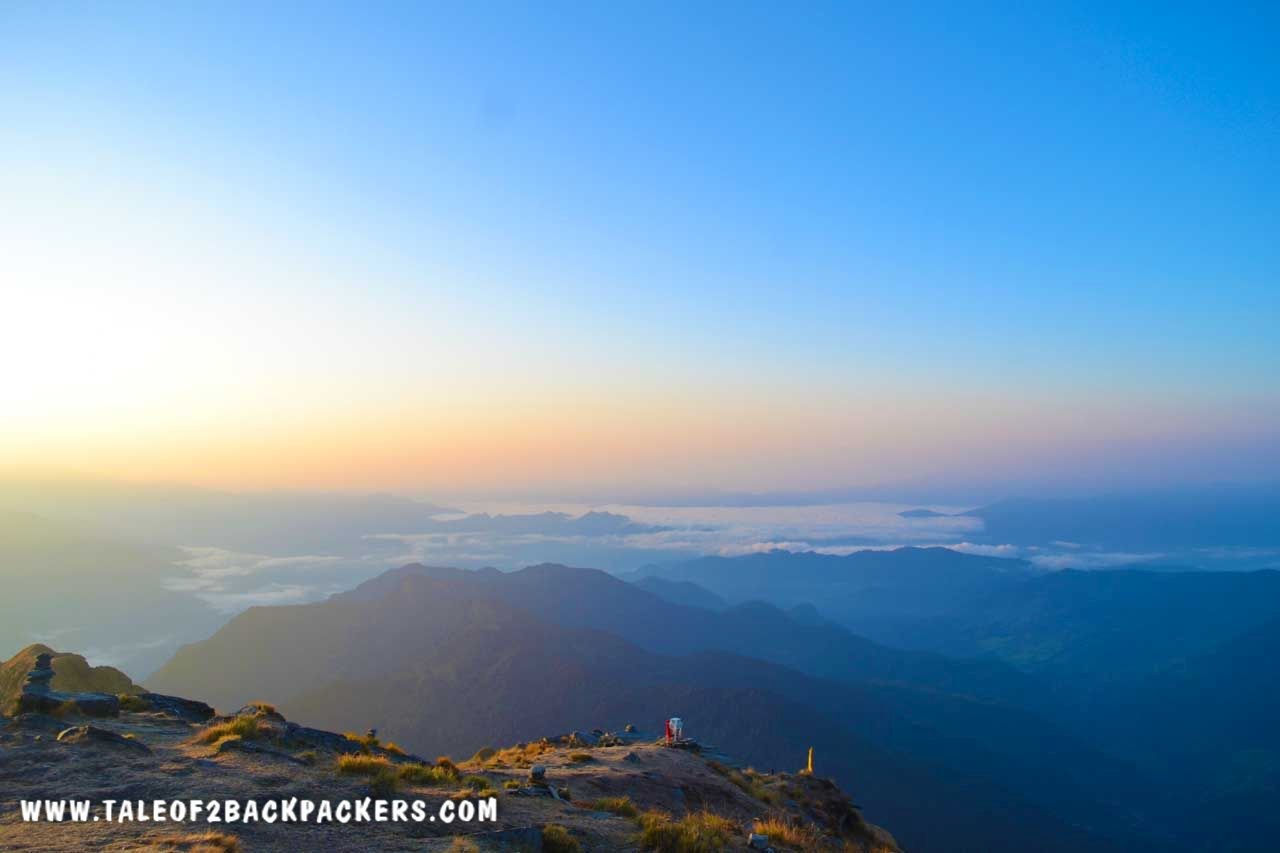
We started early in the morning at 4 AM. It was biting cold during that time. We had not anticipated such cold and had not brought jackets with us. I was literally trembling. Seeing me thus, the shop owner gave both of us two jackets. They were old and worn out but was enough to keep us warm. At first, we thought, he was renting us the jacket. When we offered him money for the jackets, but he flatly refused!
YOU MAY ALSO LIKE : Taktsang Monastery Trek, Bhutan
Chandrashila is 1.5 km trek from Tungnath, but this stretch is a tough one. The inclination is almost about 75 degrees and in the biting cold, it became very difficult for us to trek to the summit. Thank god that we had Baba Narayangiri with us! He is sadhu we met at Tungnath. While we were shivering in cold even after wearing the sweater and jackets, he coolly walked with only a shawl. He guided us through the tricky areas and soon we were on the Chandrashila peak.
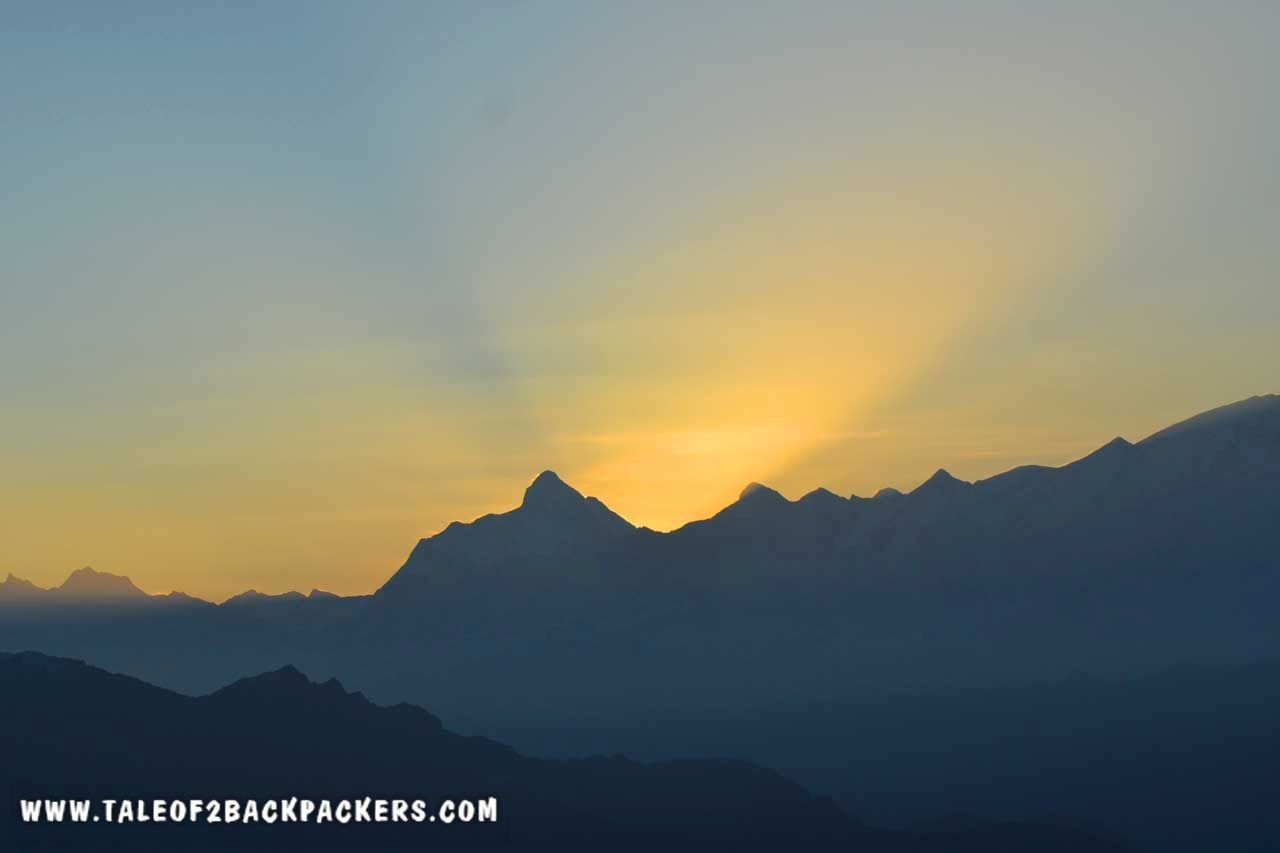
It was not yet the time for sunrise and we waited with teeth clattering against each other for the sun to rise. As the sun rose and the first rays fell on the Chaukhamba peak, we simply stood looking at the beauty. For a moment we forgot everything about our camera and that we have to take pictures. We simply stood in awe at the magic of nature. From Chandrashila, you can see Nanda Devi, the highest mountain located entirely in India. You can also get the majestic views of Chaukhamba, Trishul, Mt Nanda Ghunti, Mt Kamet, Mt Dunagiri, Kedar Dome, Kedarnath, Thalaysagar and the Gangotri ranges.
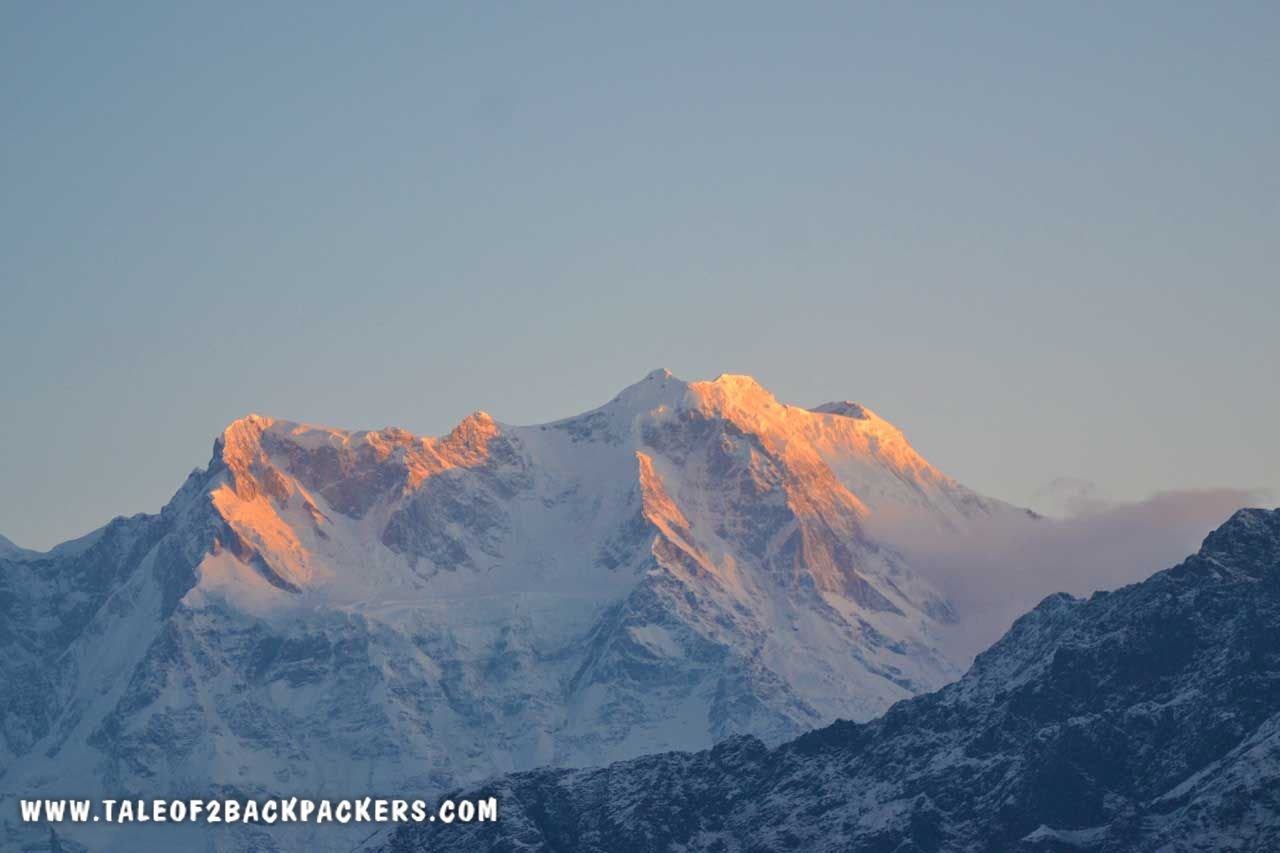

After the sunrise, we spent some moment at Chandrashila peak while Baba Narayangiri told us about his stories and his visits at the Kumbh Mela. Then we hiked down to Tungnath. We collected our luggage from there and further hiked down to Chopta. We stopped at Chopta for the night.
Day 4 | Chopta – Ukhimath – Haridwar
We started early from Chopta. We shared a car with a few other trekkers we met on the trek and came back to Haridwar.
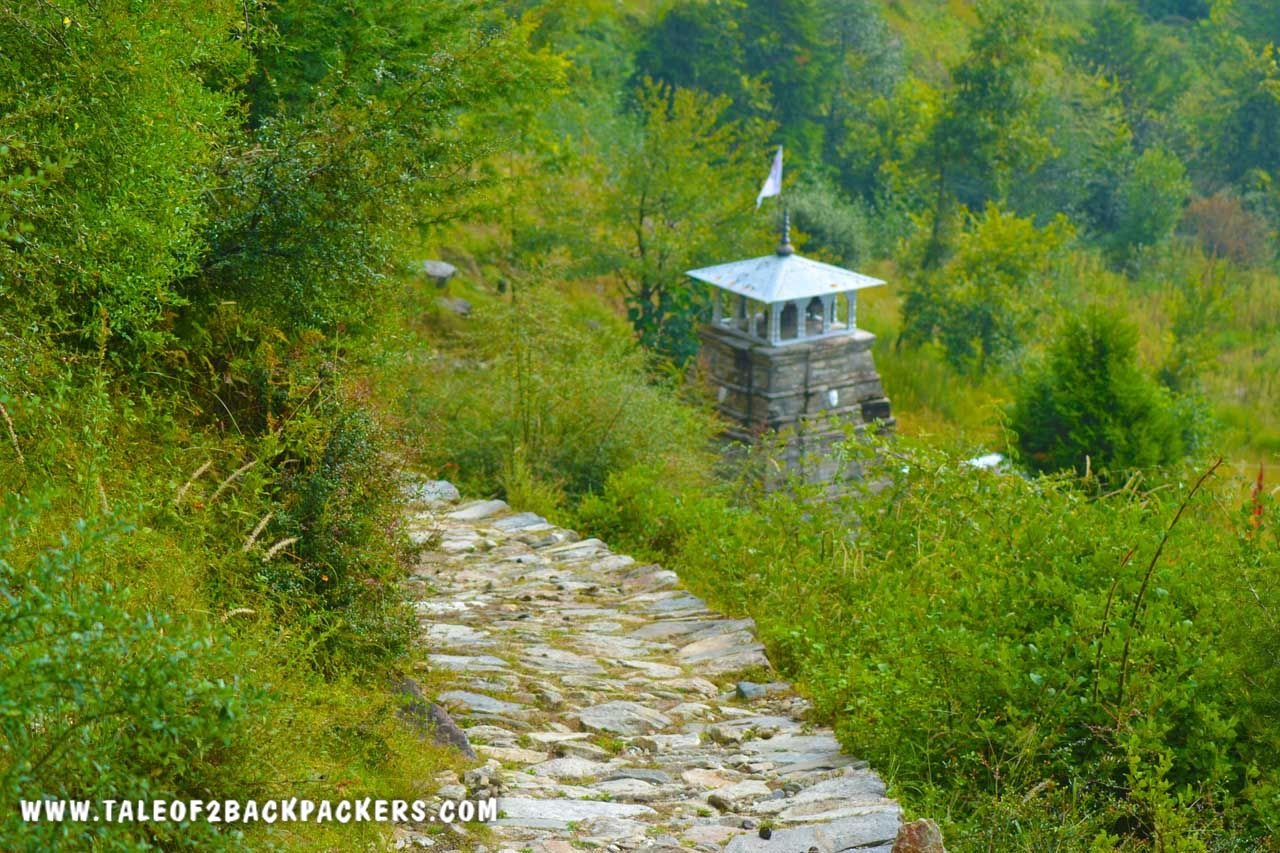
This was our Deoriatal Tungnath Chandrashila trek itinerary. You can also do only Tungnath-Chandrashila trek or Deoriatal trek if you do not have enough time.
There is a route from Deoriatal to Tungnath via Rohini Bugyal. We had not taken that route. You can take it, but you would need a guide for it. Most of the commercial trekking companies also take that route. But also keep in mind that camping at RohiniBugyal is not allowed anymore.
YOU MAY ALSO LIKE : Roopkund Trek Guide – All that you wanted to know
Best time for Deoriatal Trek & Tungnath Chandrashila Trek
Spring (March – April)
Like we always say, the best time to visit a place depends on what you like and want. The spring (March and April) is a great time to visit if you want to see the rhododendrons in bloom. Weather will also be pleasant with warm days and cold nights.
Summer (May – June)
May to June beginning is also a good time to visit. The snow melts and the weather remains pleasant. This is also the best time to do Tungnath and Chandrashila trek. It is only after March that the snow at Chandrashila starts melting and the trail becomes accessible. However, carry woollen clothes, as the nights can be quite cold.
Monsoon (Late June – August)
June to August is monsoon and should best be avoided as the area is prone to landslides.
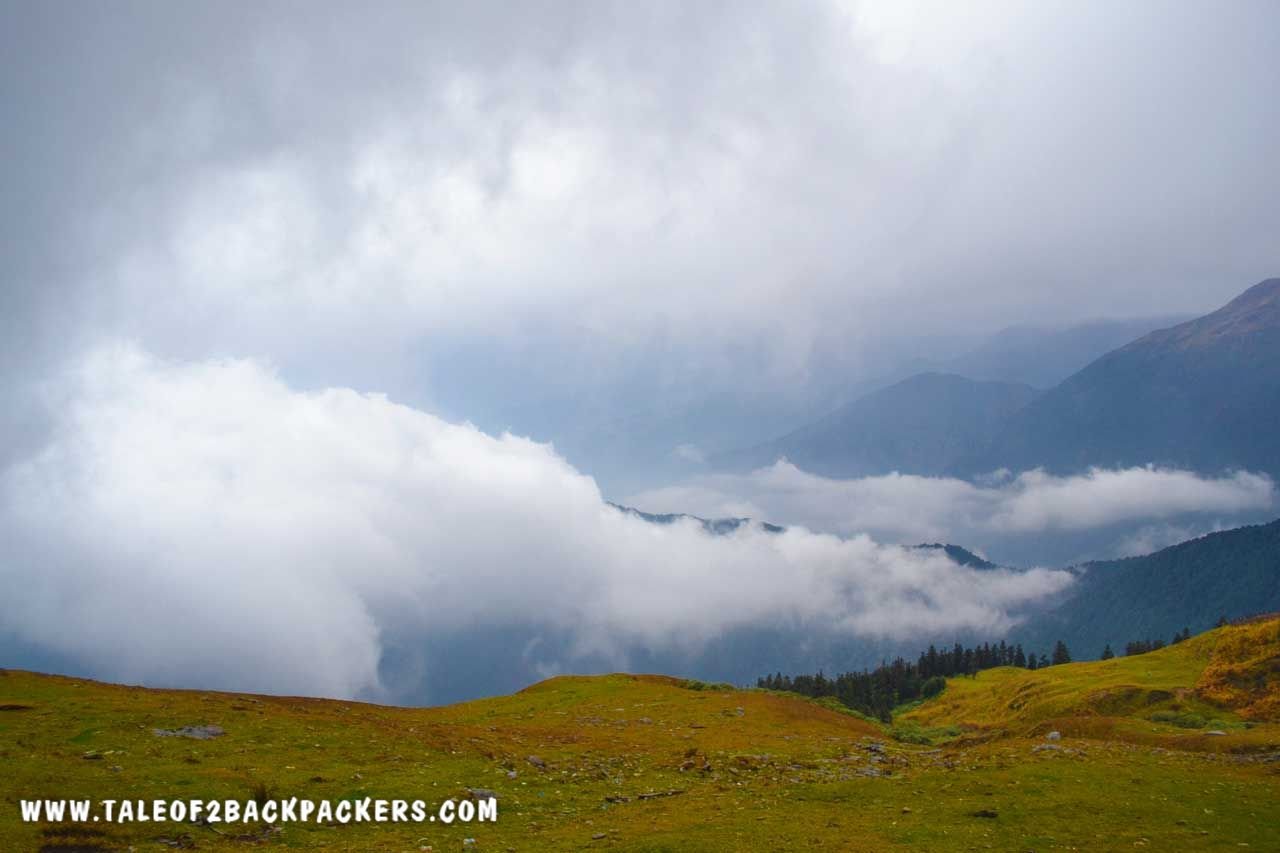
Autumn (September – October)
September is a great time to do the trek. Post monsoon, everything will be green, beautiful and fresh. The entire place looks great. The days will be pleasant while the night temperature can drop to 5 degrees.
Autumn arrives in October and brings with it clearer sky and better weather. This is also a good time for the TungnathChandrashila trek. Also, the Tungnath temple remains open till October. While the morning can be pleasant, but nights can be quite chilly. We had visited in October and the night time and early morning were quite chilly.
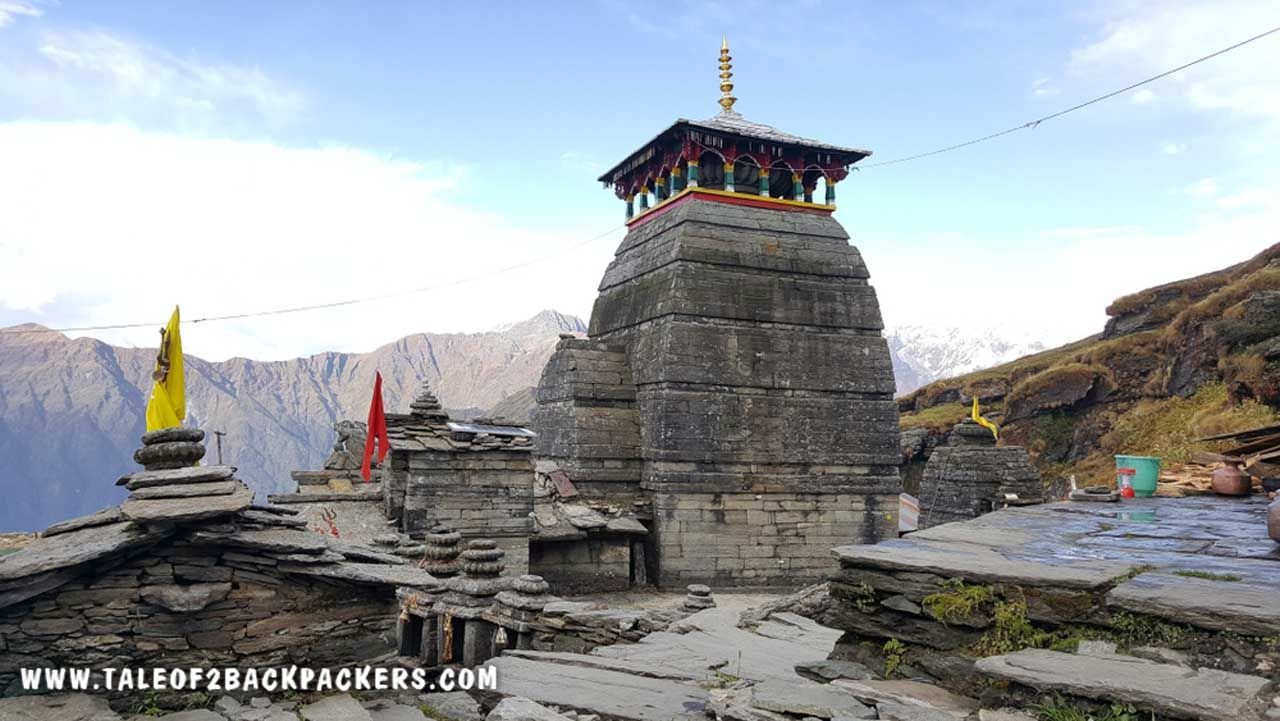
Winter (November – February)
During the winter months, the landscape becomes dull, November being the least favourable month. By December, winter sets in and you will see a blanket of white snow everywhere. The Deoriatal Lake will be half-frozen with snow all around. The temperature will be really low during this time. Also, you have to trek through the snow during this time.
Tungnath Temple will be closed and it is difficult to get accommodation there. You might have to return back to Ukhimath or Duggalbitta for night stay. The roads from Duggalbitta might be closed due to snow during this time. So be prepared to trek to Chopta from Duggalbitta or BaniyaKund. The snow trek to Tungnath is quite an adventure, but you should be careful about the weather and other conditions. Also, it is highly recommended to take a guide with you during the winter.
You might not be able to get to Chandrashila peak in the months of December to March.
Some facts and tips about Tungnath Chandrashila Deoriatal Trek – FAQs answered
Q. How to reach Chopta?
Chopta is a small and beautiful settlement area surrounded by evergreen forests and meadows in Uttarakhand. It is a part of the Kedarnath Wildlife Sanctuary. Chopta can be best said as the base camp for Tungnath trek.
If you search for Chopta in Google maps, you will come across Chopta near Rudraprayag. Well, there are actually two places named Chopta in the region. The Chopta near Rudraprayag is not the one you are looking for. This is a bigger village and so well marked in Google maps. This is the mistake we had done while looking for Chopta. The Chopta that we are talking about here is the one near Ukhimath.
There are a few routes to reach Chopta. But initially, you have to reach Haridwar or Rishikesh.
- The nearest airport is at Dehradun. From Dehradun, you will get buses and cabs to Haridwar and Rishikesh.
- The nearest railway station is at Haridwar, which is well connected with most of the major cities of India by train. You can take an overnight train from Delhi and reach Haridwar in the morning. Rishikesh is further 20 km from Haridwar.
- From Haridwar or Rishikesh, you will get buses and shared vehicles to Ukhimath. We had taken a bus from Rishikesh to Ukhimath.
- From Ukhimath, you will get shared jeeps to Chopta or can book a cab as well.
- The second route is to reach Gopeswar from Haridwar/ Rishikesh and then further travel to Chopta.
- If you are doing the Deoriatal trek first, then you have to come to Duggalbitta from Sari village and then reach Chopta.
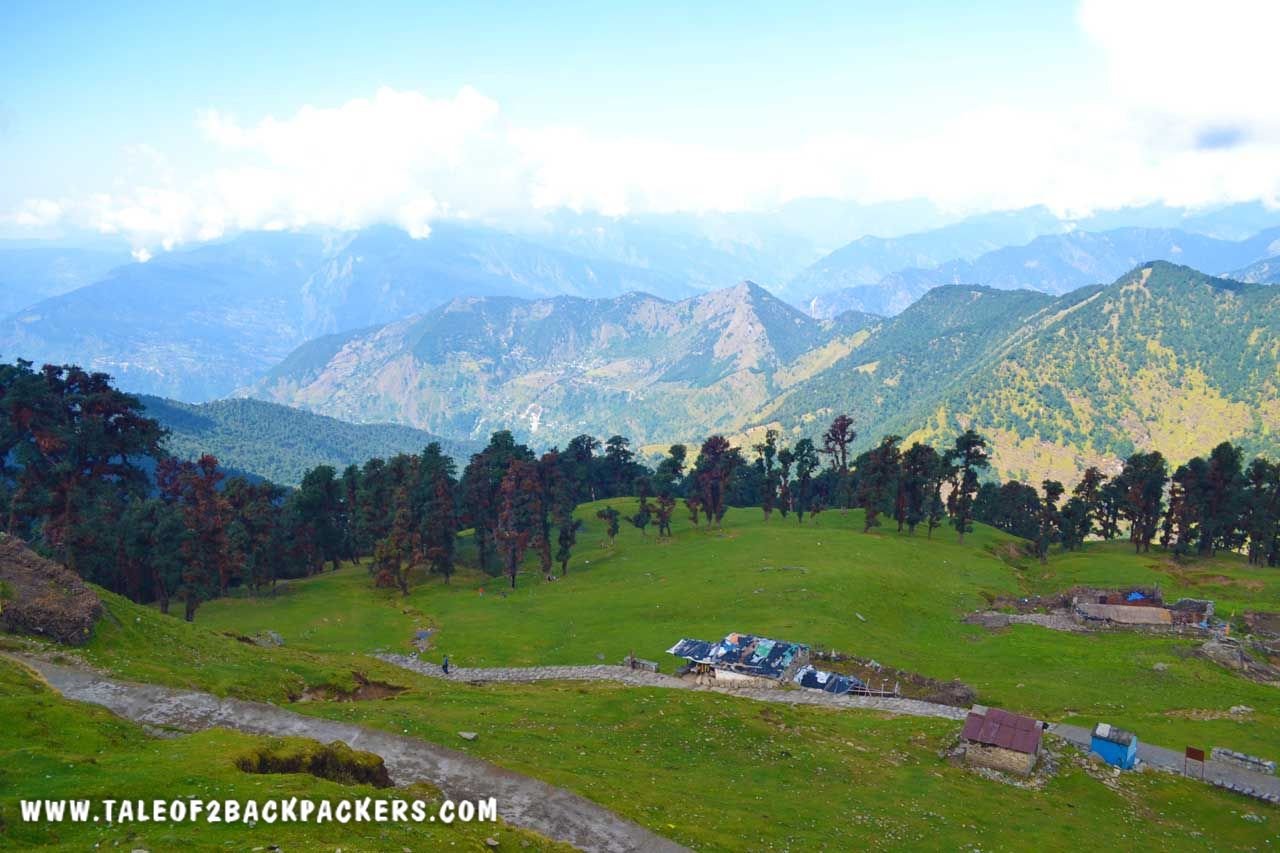
Q. What can we do at Chopta?
There nothing much to be done at Chopta. The place is beautiful and you can spend your time amidst nature at Chopta. Visit the meadows and try to spot a few Himalayan monals.
Q. Where to stay at Chopta?
There are a few hotels, guesthouses and campsites with basic amenities at Chopta. Better and fancier options of stay are also available some distance ahead of Chota towards Gopeswar. Booking in advance is not really required. You will probably get a place to stay whenever you reach Chopta. You will get rooms from Rs 800 and can go as high as Rs 7000.
Q. Self-camping at Chopta
If you are bringing your own camping gears, then you can pitch your tents and stop for the night. We recommend you to pitch your tent nearby some Dhaba or existing campsite. Another good place to camp is on the meadows on the way to Tungnath. You might have to pay some money to the Dhaba owner to pitch your tent there.
Q. Where to stay at Tungnath?
You can stay at the temple guest house. Otherwise, the dhabas and eateries near the temple also provide basic accommodation. They are actually beds in a dormitory where you can stay for the night.
Q. How to reach Sari village?
You have to reach Sari village from Ukhimath. You will have to reach Ukhimath from Haridwar r Rishikesh by bus, shared jeeps or cabs. From Ukhimath, you have to book a car to Sari.
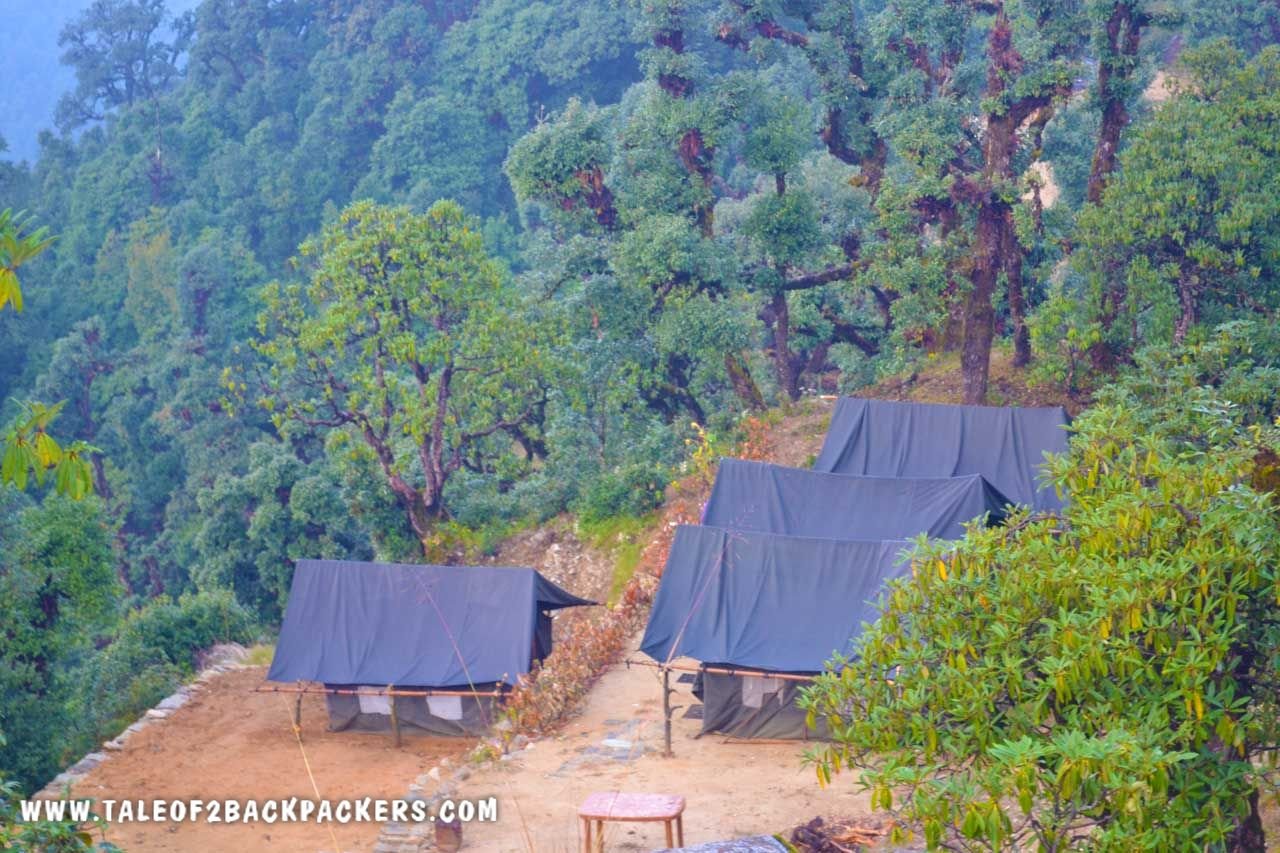
Q. Where to stay at Sari and Deoriatal?
There are a number of homestays at Sari now. When we had visited, there was only a couple of homestays, but we saw many others were being built.
There are campsites at Deoriatal for accommodation. If you do not want to stay at camps, then stay at a homestay in Sari village and do Deoriatal trekking the next day.
Q. Are there any other treks in the region?
You can do the Kartik Swami trek from Kanakchauri, 40 km from Rudraprayag.
Madmaheswar trek, another PanchKedar can also be done from Ukhimath.
Q. Are there ATMs at Chopta? Do I need to carry cash?
There are no ATMs at Chopta or Ukhimath even. The nearest ATM is perhaps at Kund, the place where you turn for Ukhimath. There is another ATM at Kedarnath Road and one at Chandrapuri. It is better to carry sufficient cash to these places.
Wondering what to carry for a Himalayan trek? Read about our guide on things to carry in a Himalayan trek.
Q. Where is the nearest petrol pump if I wish to drive?
The nearest petrol pump is at Kund, 7-8km before Ukhimath. It is better to get your tanks filled at Rudraprayag itself.
Q. Is electricity available at Chopta and Deoriatal?
No electricity is available at Chopta, Tungnath and Deoriatal. The guest houses and homestays have installed a solar panel and you can charge your mobile and camera batteries. But it is best to carry a power bank.
Q. What is the best season to see rhododendrons?
The spring usually between March and April is the best time to see rhododendrons. Nature, however, has her own rule, and no one can really predict that you will get the best bloom at the time.
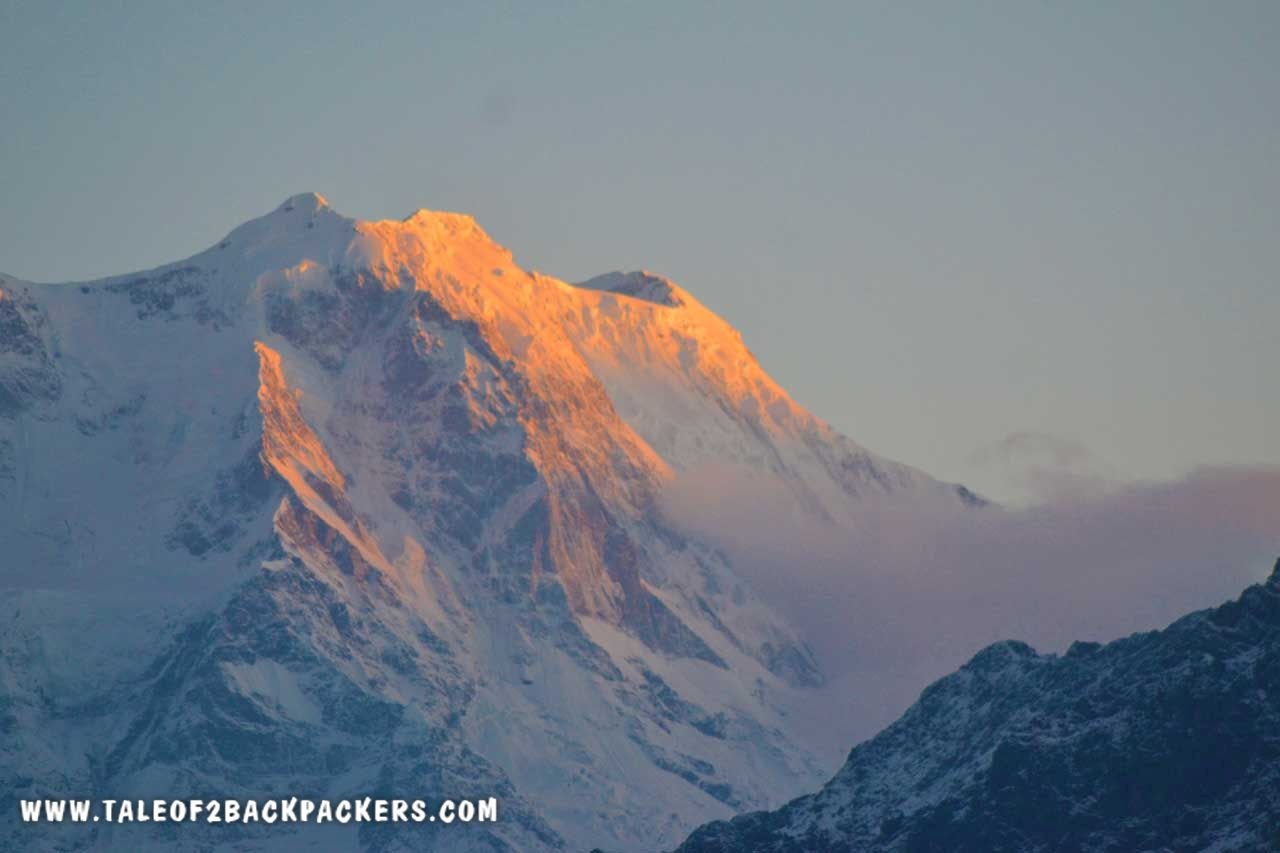
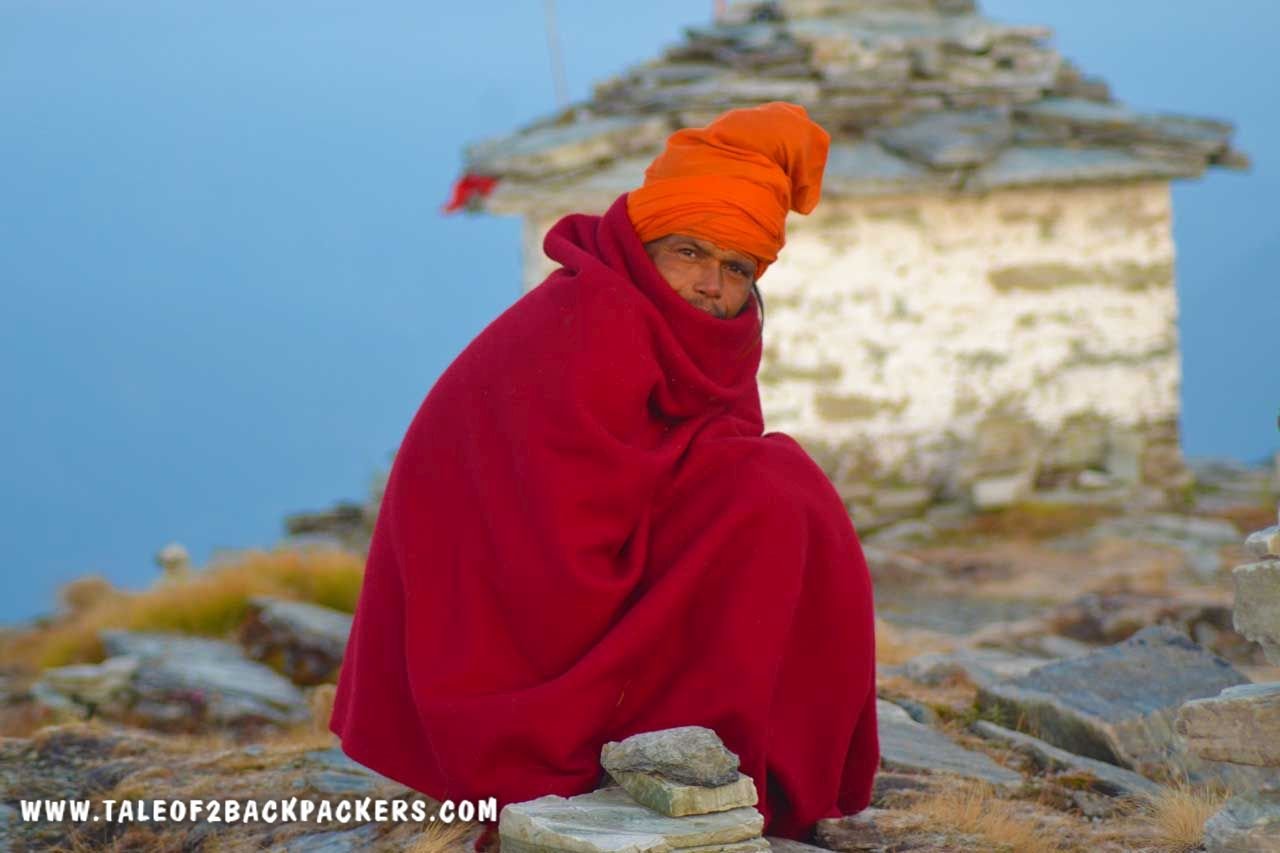
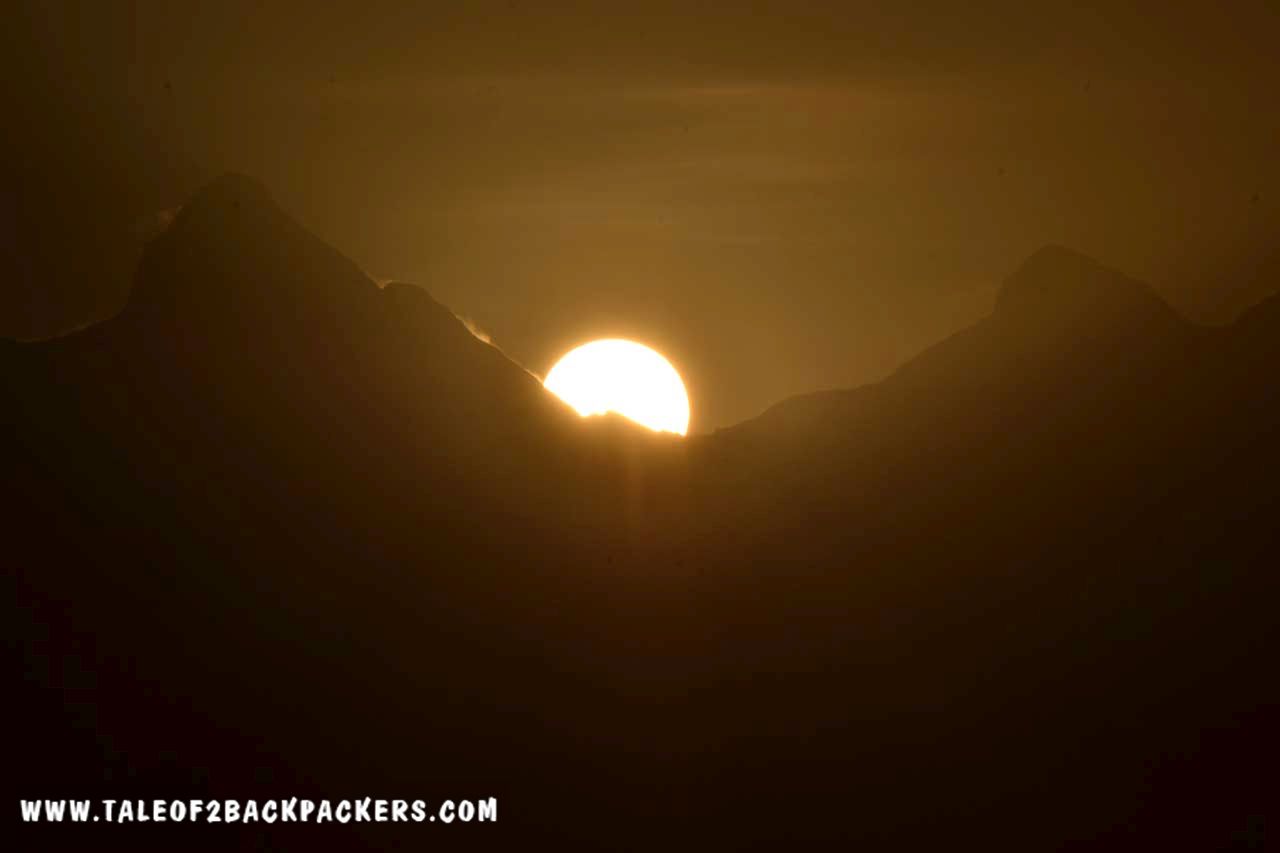
We hope that the above Tungnath Deoriatal Chandrashila itinerary will help you to plan a trip to these places. TungnathDeoriatalChandrashila is a fairly easy trek suited for beginners as well. Please let us know your thoughts about the same. If you have any questions, comment below or write to us. Please share this with your family, friends and anyone who wants to do a trip to Tungnath, Deoriatal and Chandrashila. Pin this for a later read!
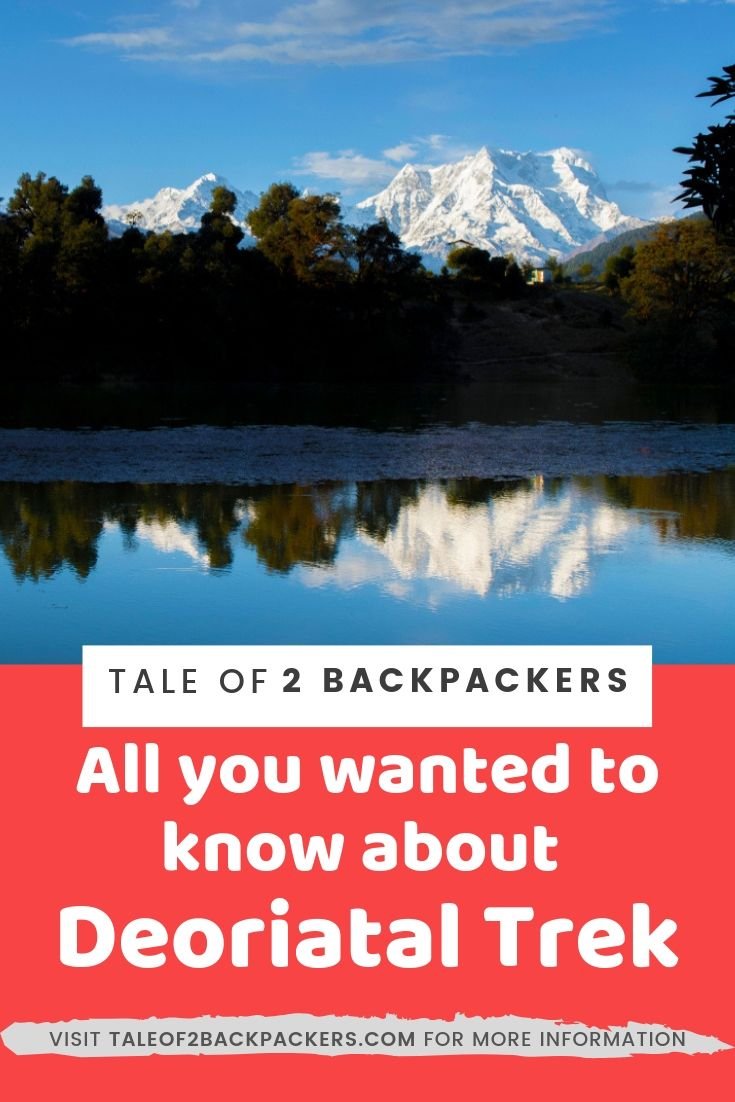
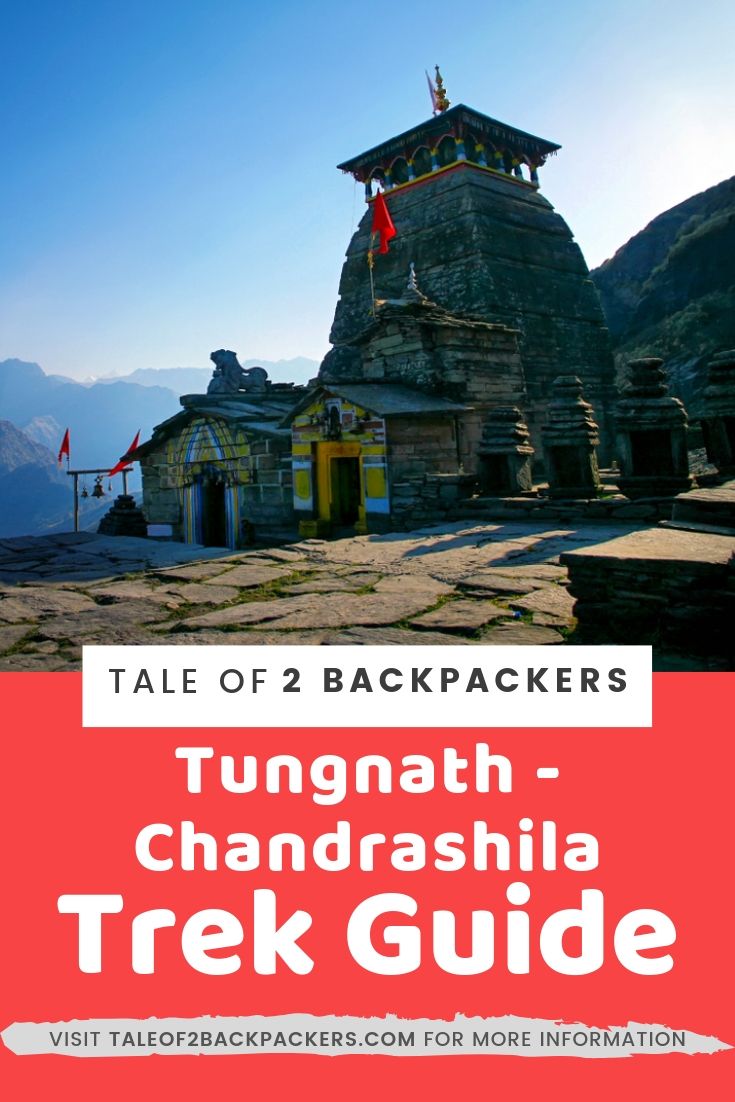
Share the love


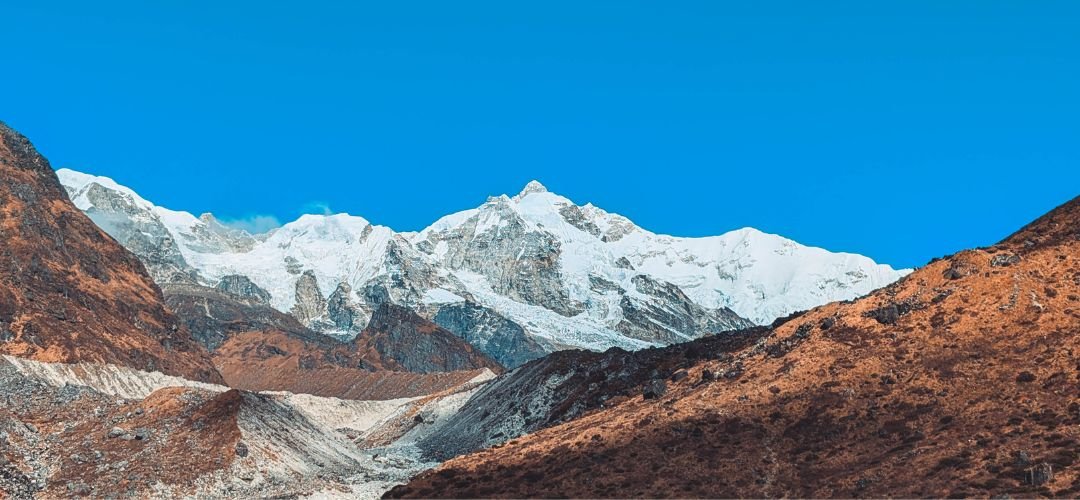
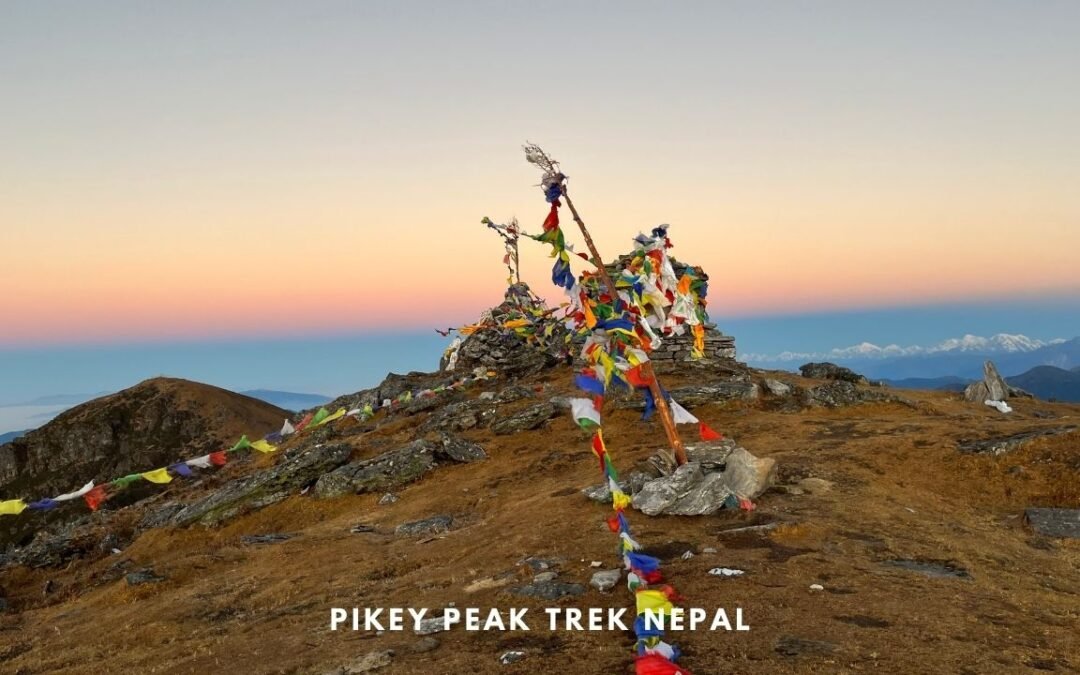
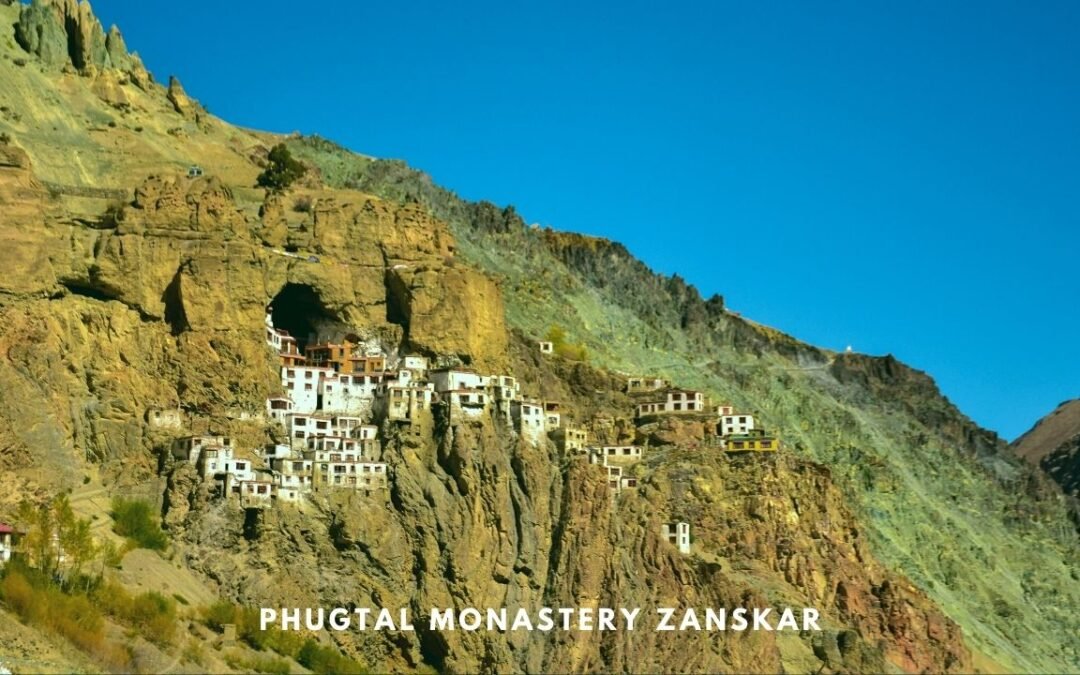
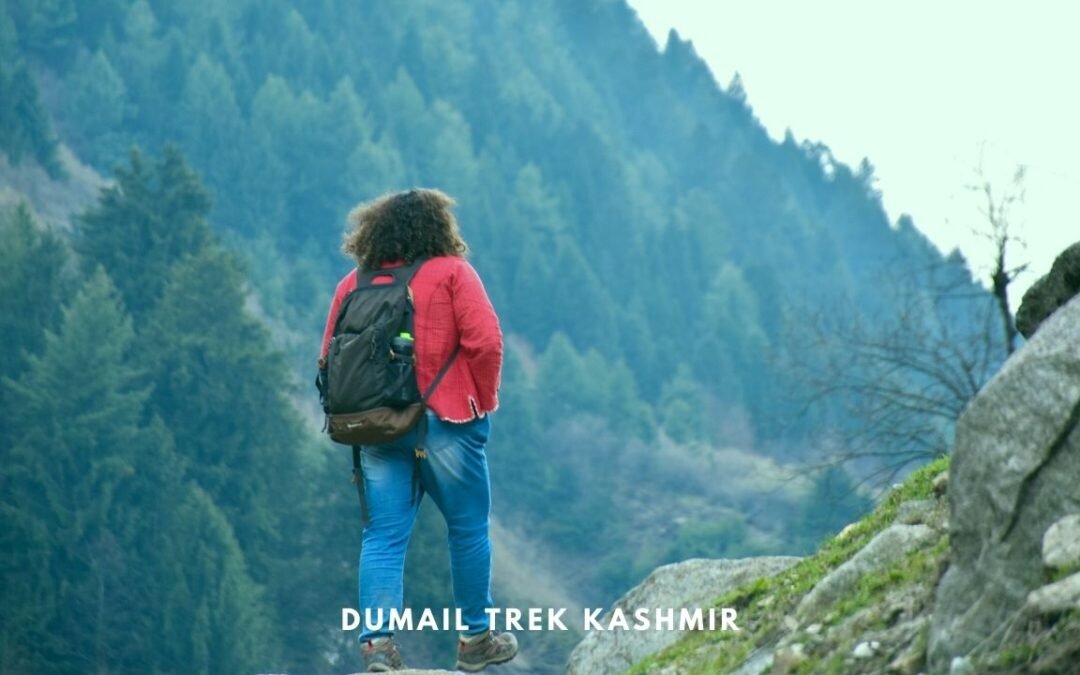
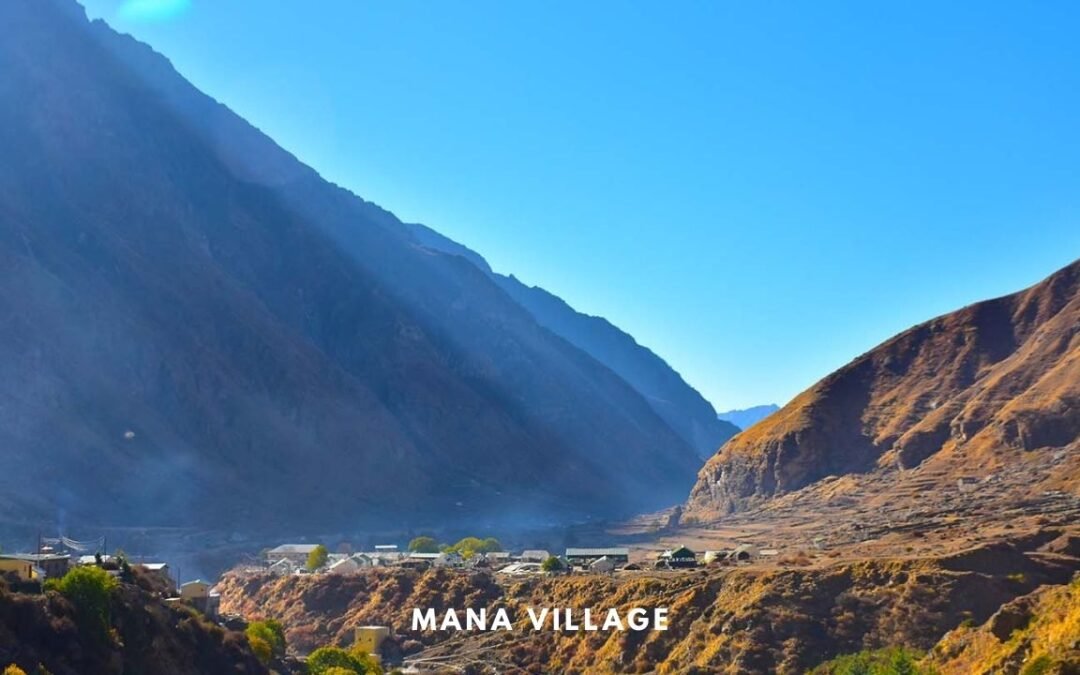
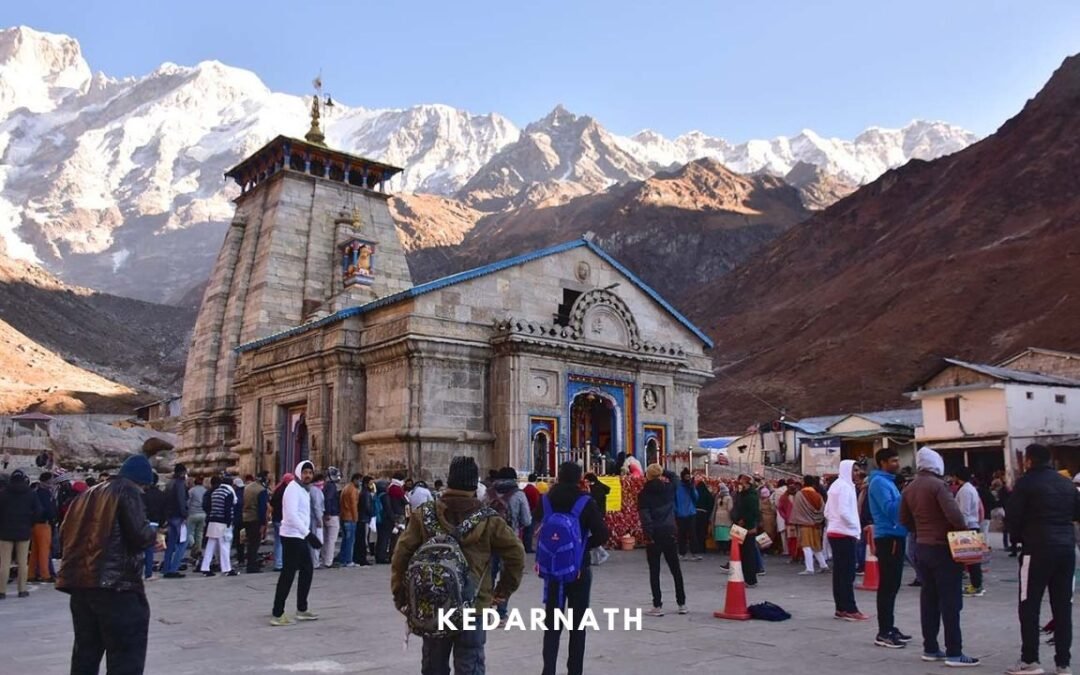
Thanks for a very informative and DIY guide
Thank you!
Brilliant article. Have been planning a trip to Chandrashila for a long time, and the information you have provided shall be of immense help.
Thank you so much Raj! We are glad that the article helped you.
Thanks for sharing this amazing post.
The post is really helpful and cleared so many doubts…very good post and work done by your team…added to this,I would like to know 1 thing can you suggest me any contact number for any guide or any local from there??and is it possible to stay at tunganath in February as we are planning for the same in feb 2020…
if i want to witness sunrise at chandrashila, at what time in night should i start trekking from chopta? i am a beginner in trekking experience.
Hi Swatilekha! The trail from Tunganath to Chandrashila Peak is a bit steep. We had started at around 4.30 AM from Tunganath and reached the peak just before sunrise. So, you can probably start at around that time. It will take you about an hour to reach the peak. So ask about the time of sunrise and plan accordingly!
can i do deoriatal chadrashila trek on my own with low budget . And if possible then please share the route and accommodations.
Yes, you can. For the route and other information, please read the blog.
thanks for a super write up. please keep it up.
I just have one question. What about toilets? are they there in Deorital?
Thank you Sunder. Yes, there are toilet tents at Deoriatal.
You have mentioned Aizawl is the capital of Uttarakhand. It is capital of Mizoram not of Uttarakhand.
Thank you for pointing it our. Have corrected it now!
Hi both, is the trek from chopta to tunganath temple feasible for elderly man who is 78 years old? My father plans to visit
Hello Chaitra! If your father is fit, then he can definitely trek upto Tunganath Temple. The trail to Chandrashila i stricky and i would not recommend that for him. If not, ponies are available.
Hey , you have beautifully explained everything. I visited chopta around 6 times but weather never allowed me to track to chandrashila. Please point out difficulties in tungnath to chandrashila tract, specially in dark ( at around 4 am) and what precaution we must take.
Hello Dr Neeraj! Thank you for stopping by our blog. The trail from Tunganath to Chandrashila is quite steep. The trail is gravelly with loose stones. So you have to be quite careful while trekking up before sunrise.
Chopta, tungnath, also known as the “Mini Switzerland of Uttarakhand,” is a breathtakingly beautiful hill station located in the Rudraprayag district of Uttarakhand, India. Nestled amidst the majestic Himalayan range, Chopta is a paradise for nature lovers and adventure enthusiasts.